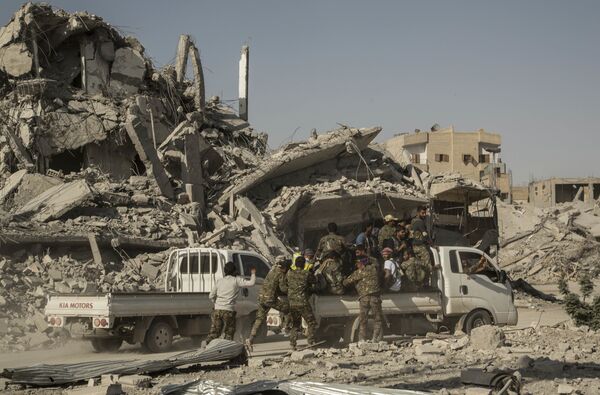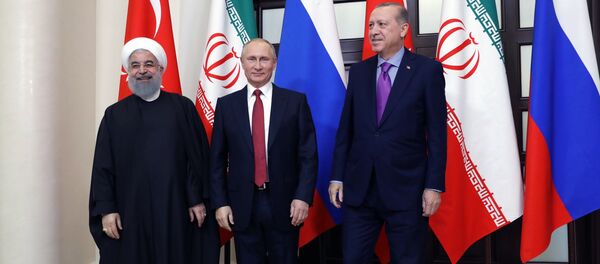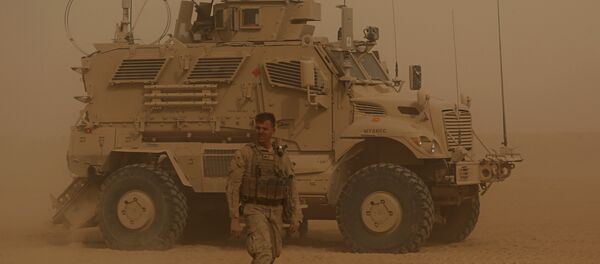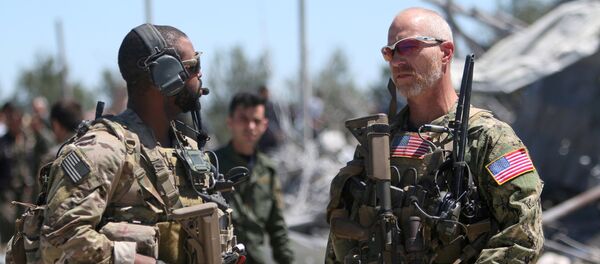After the Sochi summit between the leaders of Russia, Iran and Turkey, Turkish President Recep Tayyip Erdogan gave the green light to building bridges with Damascus, political observer Mehmet Ali Guller told Sputnik Turkey.
"[Erdogan's] statement is undoubtedly of a political nature, and is aimed at assessing the possibility of establishing contacts with Damascus," Guller noted. "It is a logical, albeit belated, consequence of the process of normalizing Turkey's relations with Russia and Iran which are friendly with Syria."
On November 22, the three leaders held a meeting in the Russian Black Sea resort city of Sochi. Speaking to journalists Erdogan remarked with regard to potential Turko-Syrian cooperation: "Whatever happens tomorrow is based on the circumstances. It is not appropriate to have an understanding of saying 'no way at all.' The doors of politics are always open until the last moment."
Guller emphasized that the Syrian crisis has dealt a heavy blow to Turkey and the responsibility for this partially lies with the AKP.
"If [the AKP] did not support the armed opposition from the outset, halted border crossings to the territory of Syria for armed opposition elements, neither Turkey nor Syria would have paid such a high price," he emphasized. "If Ankara could have already reached an agreement with Damascus, there would be no need for the Turkish army to conduct an operation in Syria."
According to the Turkish political observer, there are several reasons why building bridges between Ankara and Damascus is necessary: first, if the two countries reach compromise, the presence of Turkish troops in Syria would be legitimate. Second, the Turko-Syrian agreement may exclude the Kurdish Democratic Union Party (PYD) from the peace negotiating process. Third, it would weaken the axis of Israel, Persian Gulf monarchies and the Kurds, which the US is trying to build in the Middle East.

For his part, Musa Ozugurlu, a Turkish journalist who has long worked in Syria, said that "it is unlikely that after seven years of confrontation, the Syrian government will shortly pass to direct diplomatic relations with Ankara."
"Turkey wants to establish contacts with Syria, but its expectations from these contacts are related to its own understanding of security, primarily on the Kurdish issue," the journalist told Sputnik. "Meanwhile, Syria has set its own 'red lines' as priorities, not Turkey's sensitive issues. In order to establish a direct dialogue with Damascus, Turkey should not interfere in the internal affairs of the country, and should put Syrian interests at the forefront."
At the same time, Ozugurlu insists that Turkey should completely abandon its support to such structures as the Free Syrian Army (FSA): "However, Turkey intends to continue to provide this support to counteract the Kurdish factor — this issue remains the main stumbling block in this process."
The journalist believes that the situation in northern Syria requires Turkey's readiness to make certain concessions and reach compromises otherwise Ankara may find itself cornered.
He pointed out that all players which are currently operating in the north of Syria have different expectations: "The US supports the processes related to the creation of the Kurdish autonomous administration here. The Syrian authorities are waiting for the Kurds to stop contacting the US and [for the Americans] to withdraw from the Syrian territory… On the other hand, Russia and Iran unanimously oppose close collaboration between the US and the Kurds, but do not want to completely exclude the latter from the settlement process."
In late September 2017, Syrian Foreign Minister Walid Muallem said Damascus was ready to discuss the issue of the Syrian Kurds' self-governance once the fight against the Daesh (ISIS/ISIL) terrorist organization is over.
"This topic is open to negotiation and discussion and when we are done eliminating Daesh, we can sit with our Kurdish sons and reach an understanding on a formula for the future," Muallem said as quoted by Reuters.
However, this option does not fit into Turkey's plans, Ozugurlu underscored.
"The expectations of the parties differ," the Turkish journalist highlighted. "This means that under any circumstances in northern Syria, if Turkey agrees with one of the parties, it will face opposition from the other. Only time will tell whether there is a way for Turkey to resolve this dilemma."







